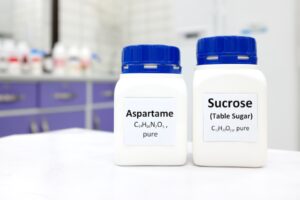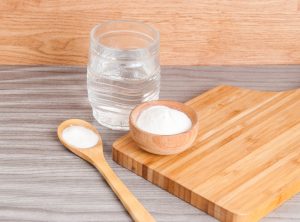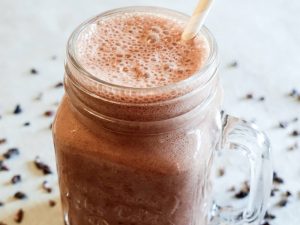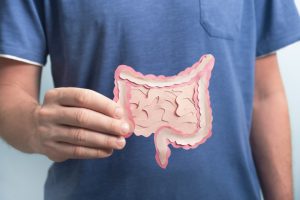Hello Everyone!
I suffered from candida overgrowth a while ago, and I know how it feels to have it. This is why I delved into the subject and want to share my knowledge of what kills candida fast, in a natural way.
The symptoms of candida overgrowth (also called candidiasis) can be hard to identify because it can present in lots of ways. It is often mistaken for conditions like Chronic Fatigue and Irritable Bowel Syndrome.
So, if you are looking for a fast, natural way to get rid of candida overgrowth and keep it at bay, you are in the right place.
What Causes Candida Overgrowth?
What Are The Signs of Candida Overgrowth?
Diet and Lifestyle Tips to Kill Candida Overgrowth, Fast
How To Stop Candida Overgrowth From Coming Back

What Is Candida?
Candida is a type of yeast, a microscopic fungus that lives in and on your body. It is part of your microflora, the community of bacteria, yeasts, viruses, and other microbes present in your gut, throat, lungs, skin, and genitals.
Candidiasis that occurs in the mouth, vagina, or on the skin (including on the penis) is often called thrush. White patches, itchiness, and soreness are tell-tale signs of a thrush infection.
Under normal conditions, candida is kept in check by other microbes. It is only when the balance of microbes is disturbed that candida has the opportunity to grow. And if it sees an opportunity, it will grow quickly!
Most candida problems can be resolved with diet, lifestyle, and in some cases, supplements. However, there is a severe form of infection called systemic candidiasis which requires medical attention. This occurs when the yeast infects major organs like the lungs and kidneys. Systemic candidiasis commonly affects people with a compromised immune system such as HIV patients, and people taking immune-suppressant drugs.
What Causes Candida Overgrowth?
Common causes include:
- Stress.
- Pregnancy.
- Taking oral contraceptive pills or Hormone Replacement Therapy (HRT).
- Smoking.
- A diet high in Ultra Processed Foods and Drinks (UPFDs).
- Chronic illness.
- Using a catheter.
- A compromised immune system.
These issues affect the balance of microflora in and on your body. When the microbes are disrupted, candida takes the opportunity to thrive.

What Are The Signs of Candida Overgrowth?
Signs and symptoms of a yeast overgrowth will be different for everyone, but they include:
- Sore patches in the mouth
- White coating on the tongue
- Cracked corners of the mouth
- Sore throat
- Difficulty swallowing
- Sore, itchy genitals, and in women, a foul-smelling vaginal discharge that looks like cottage cheese
- Fever
- Chills
- Brain fog
- Depression
- Athlete’s foot
- Nail infections
- Skin infections
- Diarrhea
- Constipation
- Bloating
- Chronic fatigue
- Memory and concentration issues
- Mood swings and irritability
- Sinus infections
- PMS symptoms
If it is left unchecked, candida can start to attack the lining of the gut, causing leaky gut syndrome. Damage to the gut lining allows partially digested foods and toxins into the bloodstream. These can trigger an immune response which then leads to chronic inflammation.

How Do You Test for Candida?
Various blood, urine, and stool tests can check for candida overgrowth. And there’s also a simple home saliva test that you can do. If you follow me on Instagram, you can find it in my reels. Do check out the videos for candida support, too.
Diet and Lifestyle Tips to Kill Candida Overgrowth, Fast
Eat Burn Sleep’s anti-candida protocol is powerful, effective, and long-lasting.
The plan focuses on anti-inflammatory foods that support a healthy balance of microflora in your body. Unlike other candida diet plans, the Eat Burn Sleep approach doesn’t tell you to “starve” the candida because ultimately, that doesn’t work!
You don’t want to be feeding it with sugars and ultra-processed foods, but neither do you want to try and “starve” it out of existence because that won’t happen.
You need to take a multi-pronged approach to candida management that includes:
- Foods that support a healthy balance of microflora
- Anti-inflammatory foods
- Anti-fungal foods
- Foods that support your liver detoxification pathways. Your liver has to deal with the candida die-off and it needs plenty of help with this.
- Foods to support regular, comfortable bowel movements. This ensures the dead candida leaves your system!
- Relaxation and meditation. Stress is a big trigger for candida overgrowth. If you don’t learn how to handle stress, you are leaving the door open for candida to return.
- Restful, restorative sleep.
We have a powerful candida protocol as part of our Premium Membership. The protocol covers the diet, lifestyle, and supplement advice you need to kill candida overgrowth quickly and naturally. You can use this protocol alongside the 6-Week Reset program which gives you food lists and meal plans to keep you motivated and inspired.

How to Manage Candida Die-Off
You will know when the candida overgrowth is dying, and it usually happens by day 3 of the protocol. It’s that quick!
When the candida starts to die off it can cause a few uncomfortable side effects like wind, bloating, nausea, and fatigue. This is when you won’t feel like yourself, but the upturn is so worth it. Oh my goodness, you will feel amazing afterward!
Just keep going, follow the plan, drink plenty of water, and rest as much as you can.
How To Stop Candida Overgrowth From Coming Back
Once you’ve dealt with the overgrowth and are feeling better, I recommend you follow the overall Eat Burn Sleep approach to maintain this improvement.
The EBS diet and lifestyle can keep candida at bay because it deals with the underlying cause of yeast overgrowth – poor gut health and imbalanced microflora.
The movement and meditation practices are a powerful part of this approach too. Many of our members have been surprised by the power of the neuroplasticity exercises and how their brain feels rewired afterward. By following these exercises they have been able to break strong addictions to sugar and processed foods.
Strong immunity, resilience to stress, healthy digestion, boundless energy, mental clarity, and sharp concentration – these are some of the amazing outcomes you can expect from the Eat Burn Sleep diet and lifestyle. So if yeast overgrowth is a regular occurrence for you, I advise following this lifestyle to combat and prevent it!
This is what EBS member Sharon says about the program…
I’m really enjoying the EBS lifestyle, and have been following it for 10 months now, I feel the best in years, I have a flat tummy and suffer much less with bloating.
When I did the six-week reset the first week was hard but by day 5 I was feeling so good it encouraged me to keep going.
I am slimmer around my middle and have a lot of energy. My joints feel so much better. I can tell I have less inflammation in my body. The workouts are great and because they are short, I always can fit them into my day.
I love all the information and master classes on the platform, as I like to learn about health and nutrition. I will be subscribing for another year – thanks Yalda for all your work, in helping yourself, you are now helping so many people.
Want to know more? Check out our membership options now.
You might also like:
Habit Stacking: The Key to Making Your Health Habits Last
How Does Sleep Help With Inflammation?
With love,
Yalda x
Yalda Alaoui is a qualified Naturopathic Nutritionist (with a foundation in Biomedicine) who studied with the College of Naturopathic Medicine in London.
She has spent over a decade performing groundbreaking research in chronic inflammation and gut health.




























































